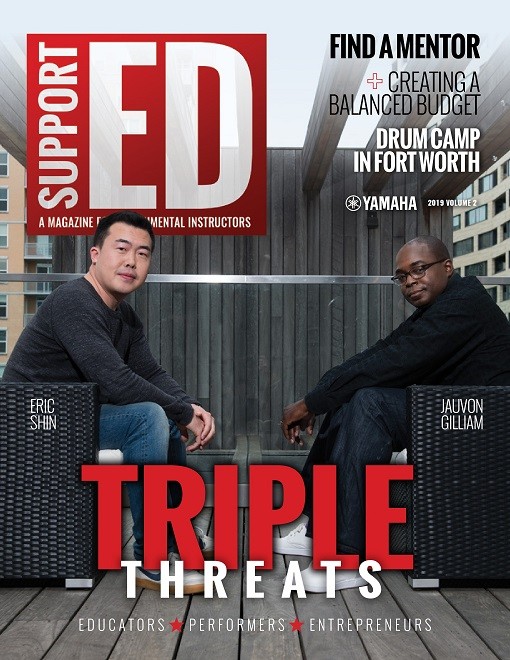Budget for Success
Many variables – including unknown elements – must be balanced in order to create a sound financial plan.
Responsible financial planning by the booster club is critical to the short-term and long-term success of your music program.
Take the First Steps
Start early — at least six months before the year starts. Don’t rush the process.
Organize a budget committee in order to gather fresh views and share the workload. Up to six people would be the optimal size for the group as too many opinions can cause timelines to stretch and create more ideas than the organization can fund.
Budget the income first, so you can then prioritize expenses. Consider income that will be generated from individual fees, donations, fundraising and other sources. Budget fundraisers based on realistic targets, not stretch goals. Use financial history when applicable — but always anticipate new situations.
Be Realistic
One of the most challenging elements of the budget process is anticipating uncollectible fees. The board and staff need to have honest and open conversations about this topic: Does your organization exist to educate and train all interested students or only the students who can afford to participate?
Use a financial aid process to assist parents who cannot afford the fees. The financial aid may be funded by sponsors, alumni programs or other sources. The budget process must capture all of the variables related to this area.
Be supportive of the directors’ needs, but realize that the booster organization has a fiduciary duty to track and spend funds in the most responsible way for the program. Be prepared to offer alternatives or tradeoffs to requests, if needed, and always work hand-in-hand with the director on final decisions.
In order to stretch the funds further, consider secondhand dealers for uniforms or equipment. Many large programs that have incredible funding will buy uniforms every five to 10 years, and their “old” gear can be a great investment.
Discretionary line items for supplies and for the director to use should be included to provide flexibility because every single item cannot be identified before the year starts. Put proper controls in place for approval of these items to have appropriate oversight on spending decisions.
Look at the Horizon
Budget for reserves. Accumulate funds for future large purchases such as uniforms, instruments or trips. The capital purchases process must have a multiyear view and involve input from several stakeholders. It requires discipline by all involved but is a better approach than trying to use special fundraisers for these large purchases.
Build the expense budget based on the needs of your organization and not based on what other programs do in your region or state. Each program is different and must operate within its means. Your program must clearly define success, so that everyone understands what the budget is trying to accomplish.
Remember all Stakeholders
A strong relationship with the school system administration is critical. Administrative support can often save large sums of money for boosters. For example, the school district may offer insurance, maintenance on vehicles, staff and facility use for performances and fundraisers. Quantify the dollar value of this school system support, so the organization understands the monetary impact from the administration.
The budget data should be presented in summary to the entire booster club. If certain stakeholders have interest in details, they can discuss matters with the booster club treasurer in a private meeting.
Determine key milestone dates to review actual results compared to budget expectations. Often there are timing differences, but if a variance is not going to align to budget expectations, the disparity needs to be identified and managed. If revenue is below budget or expenses are over budget, adjustments must be made in areas that are not yet committed in order to balance the year.
A sound financial plan can lower stress and allow more time for the booster club and directors to focus on musical objectives rather than balancing budgets.
This article originally appeared in the 2019 V2 issue of Yamaha SupportED. To see more back issues, find out about Yamaha resources for music educators, or sign up to be notified when the next issue is available, click here.

















